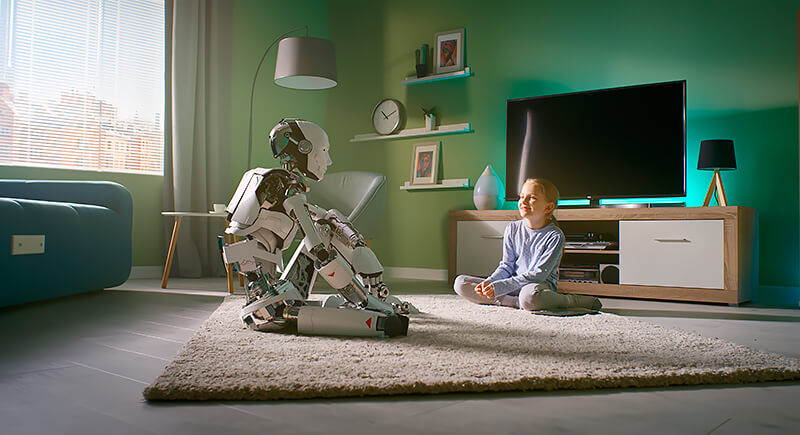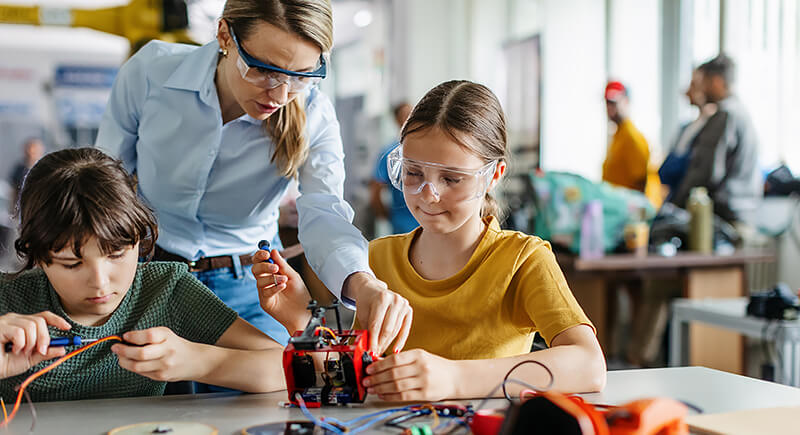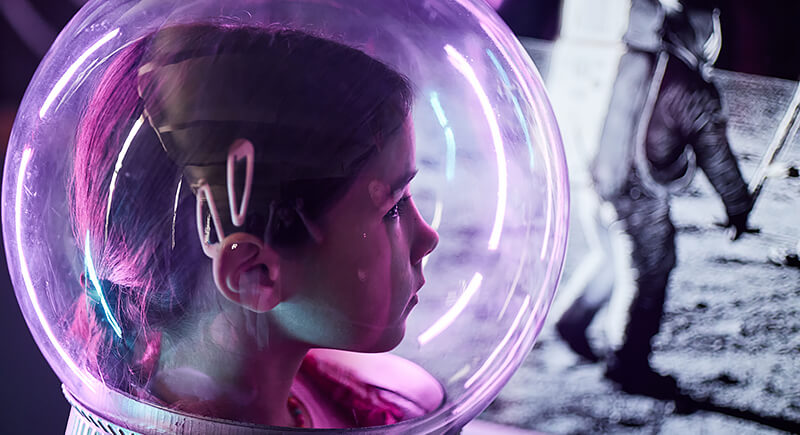Here’s What Experts Are Predicting for Generation Beta
Children born from 2025 through 2039 will come of age in a world defined by artificial intelligence as much as by family, school, and culture. Researchers expect their lives to move through shifts in technology, climate, and social structures at a pace no earlier generation has seen. Predictions differ in tone, but they share one point: childhood in this era will look very different from the one we know today.
They’ll Grow Up as AI Natives, Not Just Digital Ones

Credit: iStockphoto
AI won’t feel like tech to them. Generation Beta won’t remember a time without machines that answer, assist, and occasionally joke. They’ll never “discover” AI. Instead, it’ll run their worlds, from how their cereal gets ordered to how their learning plans are built.
They’ll Likely Inherit the AGI and ASI Tipping Points

Credit: iStockphoto
If artificial general intelligence or even artificial superintelligence emerges by the 2030s, Gen Beta may be the first to grow up under these new realities. Their adulthood will unfold amid deep questions about how to coexist with intelligence that is more advanced than our own.
Their First Teachers May Be Algorithms

Credit: iStockphoto
Before they meet a second-grade teacher, they may already know their AI tutor by name. These programs could adjust lessons in real time, offer feedback instantly, and track learning patterns better than most humans. Educators might focus more on emotional support while tech handles the heavy academic lifting.
They’re Predicted to Live Longer Than Any Generation Before

Credit: iStockphoto
Medical advances are likely to give Generation Beta longer and healthier lives than their parents and grandparents. Tools such as genetic therapies, constant health tracking, and earlier cancer prevention could push lifespans well beyond 100 years, with a greater chance of spending those years in good health.
Mental Health Support Could Become AI-Led

Credit: pexels
AI companions and digital therapists may play a leading role in how Beta children cope with emotional stress. As mental health services are increasingly digitized, they could become more accessible but also less personal. The effects of long-term reliance on automated emotional support remain unknown and controversial among experts.
Many of Their Future Jobs Don’t Exist Yet

Credit: iStockphoto
Nearly nine in ten surveyed adults believe Gen Beta will work in roles that haven’t been invented. As automation and machine learning transform industries, job training may shift toward adaptability and lifelong learning. Emerging roles could involve AI ethics, virtual infrastructure, and environments not yet part of the economy.
Some May Never Retire in the Traditional Sense

Credit: iStockphoto
For Generation Beta, leaving the workforce entirely may be less common. Longer lives and shifting job structures point to flexible schedules, career changes later in life, or periods of extended rest instead of a full stop. With retirement costs climbing, some financial experts even suggest parents begin saving for it as soon as their children are born.
They May Never Use Physical Money

Credit: iStockphoto
Coins and bills could fade into memory, mentioned only in family stories. Daily transactions might happen through phones, watches, or voice commands, with digital wallets replacing pocket change. Even the basics of saving and spending could be learned without ever touching cash.
AI Companions May Become Emotional Stand-Ins

Credit: iStockphoto
They won’t just talk to their watches. AI avatars might become their sounding boards, daily planners, and confidantes. These digital companions could grow with them, adjusting tone and personality over time. It might be helpful or disorienting. The line between emotional support and simulation could get hazy fast.
Their Sense of Identity May Be Shaped Digitally

Credit: iStockphoto
In virtual classrooms and digital communities, Beta children might be represented by customized avatars. These personas could influence how they express themselves and interact with others. As identity becomes increasingly fluid across platforms, children will likely need help navigating the line between real-world and digital self-expression.
They’ll Be Deeply Shaped by Climate Urgency

Credit: iStockphoto
Rising temperatures, extreme weather, and shifting resources will be part of everyday life for this generation. Schools and governments are expected to build sustainability into lessons, laws, and community planning. With Gen Z and millennial parents already focused on the environment, Beta children are likely to grow up with climate resilience as a core priority.
Global Citizenship May Become a Core Expectation

Credit: iStockphoto
Children may grow up seeing the world as one shared space rather than a collection of borders. Technology will connect them early to peers on other continents, and schools are expected to treat cross-cultural cooperation as a basic skill. Civic life could center on tackling issues that no single country can solve alone.
They May Be Raised by More Diverse Family Structures

Credit: iStockphoto
The “standard” family will likely expand in definition. Co-parenting without cohabitation, multigenerational living, and families defined more by love than legality may be common. Many experts predict that in some homes, pets could outnumber children, pointing to a shift in how households are formed and function.
Their Parents Might Limit Their Screen Time More

Credit: iStockphoto
Gen Z parents—tech-savvy but wary—could take a different approach from the millennials raising Gen Alpha. Many are already aware of the effects of early exposure to screens and social media. The result may be a generation of children who are introduced to technology more gradually and with clearer boundaries.
Space Travel Might Be as Routine as Flying

Credit: iStockphoto
Booking a seat to orbit could eventually be as common as a passport renewal. With private space companies racing to make tourism cosmic, Gen Beta might think of space as just another destination. That said, affordability, safety, and ethics will need to catch up before it’s anything close to ordinary.